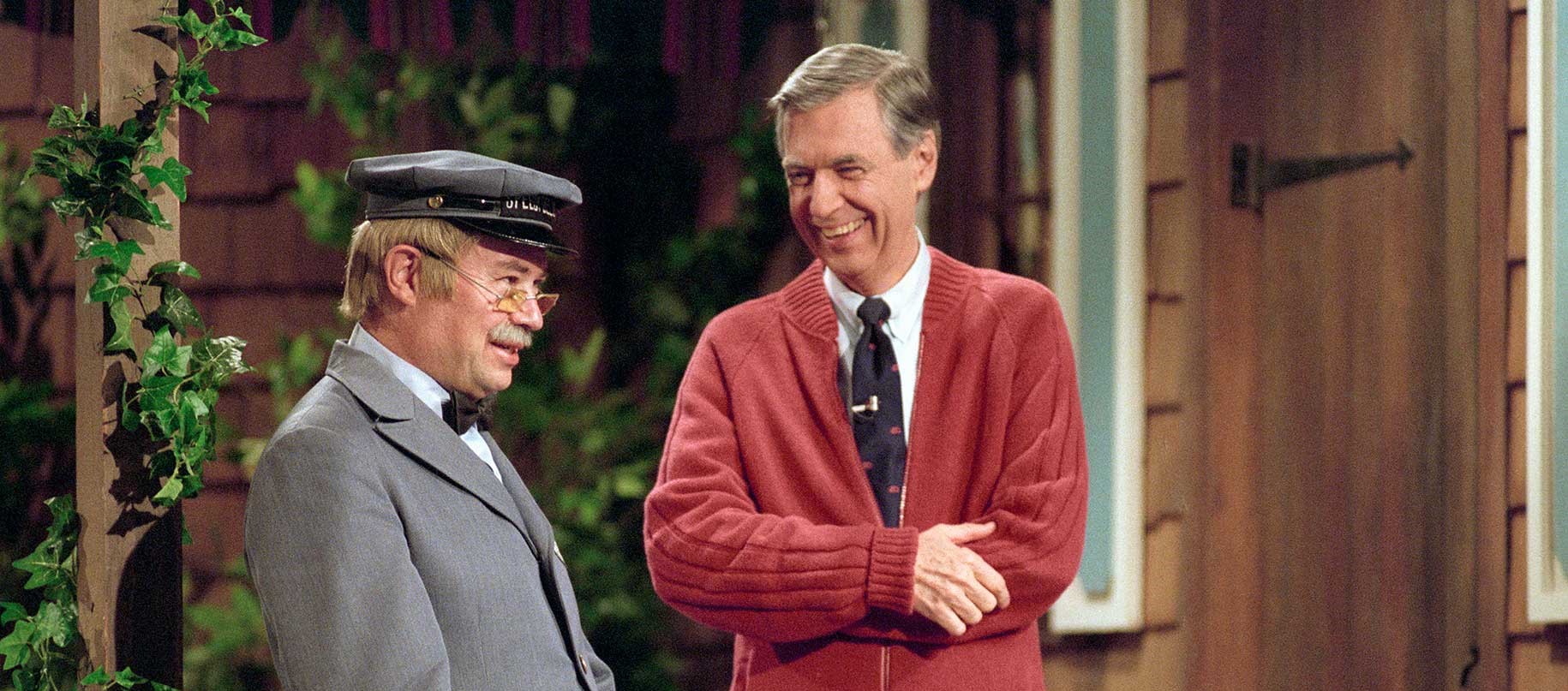“But he, desiring to justify himself, said to Jesus, ‘And who is my neighbor?’”
– Luke 10:29
I recently saw two movie previews. One was for a big-budget summer movie with all the explosions, catch phrases, celebrities, and citywide carnage Hollywood can capture with a green screen.
The other preview was for a small-budget documentary about a man from Latrobe, Pennsylvania. This man was also a celebrity, but his character was much different. In fact, he didn’t have a character at all. He had a small, non-impressive studio, some hand puppets, and the occasional neighborly friend who stopped by to say hello. Elaborate costumes were abandoned for a simple cardigan, necktie, and fresh pair of walking shoes.
I remember watching Mr. Rogers as a child. Nothing seemed remarkable about the man. The show was entertaining enough, and there was something about that Ding Ding from the trolley that made my eyes light up.
What I didn’t realize at the time was how much of a revolutionary Fred Rogers and his small children’s show was. Rogers broke racial barriers, social stigmas, embraced the handicapped and disabled, was an advocate for children, and revolutionized standards in his industry.
Over the course of his three decades on Mr. Rogers’ Neighborhood, Rogers talked about many things: school, jobs, friends, etc. But he also openly and honestly walked with children through such difficult topics as death, sickness, violence, and calmed their fears through wartime and political upheaval.
Of course Mr. Rogers isn’t remembered for being a revolutionary. He’s remembered for being a friend with an open invitation: “Won’t you be my neighbor?”
Today we often find ourselves clamoring for the loudest voice, the strongest argument, the most impressive flare, always asking the question, “Are you on my team?”
We approach people at arms length with skepticism until we know their political leaning, religious understanding, or evaluate their like-ness to us. We then may accept them as an ally, but rarely as a neighbor. Being a neighbor entails responsibility. It means time and life. It means being together.
I often approach people with the thought, “They aren’t my neighbor, are they?” Or like the man in Luke 10, seeking to justify myself, I want clear definitions and boundaries – “Who is my neighbor?”
But Mr. Rogers did not ask, “Who is my neighbor?” He invited, “Won’t you be my neighbor?”
How much stronger would my Gospel proclamation to the world be if I had this approach – seeking out neighbors that I might love them, speak truth with them, introduce them to life, and walk alongside them through difficult times.
The world may be bent toward the impressive and the powerful, but real impact lies in those without fences. It comes through an open invitation, not a cautious questionnaire.
Mr. Rogers spoke truth, and he did so in love. He targeted not the rich and the powerful, but the smallest and the weak.
Ultimately my model is not Fred Rogers, but Jesus Christ who though he held all the power in the cosmos, chose to humble himself as a servant. He offered not a place for the powerful, but a home for the weak, the orphan, the widow, and the sinner.
How would your world be different if you took a page from Mr. Rogers? How would your daily interactions be influenced if you approached people with not a series of questions, but a single invitation: “Won’t you be my neighbor?”
Perhaps then our neighborhoods would see a much more beautiful day.
Photo credit: http://www.focusfeatures.com/wont-you-be-my-neighbor/image/unit_fred-rogers-david-newell
